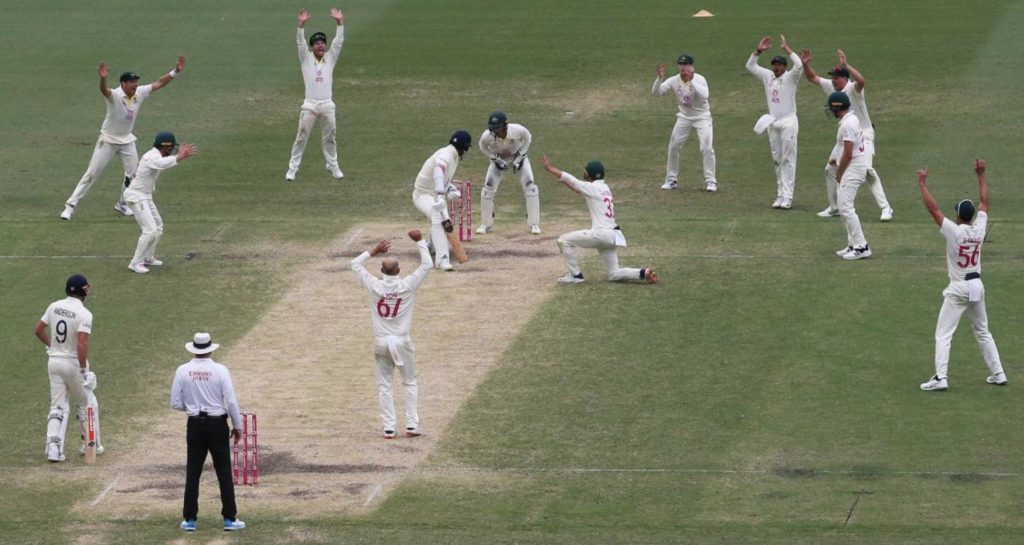In a gripping week, Test cricket reminded its younger siblings why it remains the game’s premier format, writes RYAN VREDE.
One can be forgiven for losing sight of that assertion in light of 2021 being dominated by white-ball and specifically T20 cricket as teams prepared for the World Cup.
The Test cricket that was played mainly featured cricket’s big three – Australia, England and India – as well as the half-grown fourth, New Zealand, playing among each other.
There were some incredible moments in those series, not least of all India winning in Australia while engaging a depth of mental toughness that makes the format so great.
The overwhelming feeling, however, is that the year was geared towards the T20 World Cup and that Test cricket was somewhat of an afterthought.
Not so now. Test cricket’s reignition began with Bangladesh’s historic victory over New Zealand. It was their first-ever victory in New Zealand and only their sixth in 61 away Tests. It was New Zealand’s first loss in 16 home Tests over the past four years.
The Black Caps are the current Test champions. Bangladesh are ranked ninth. Yet, the gulf in ranking points meant nothing when confronted with the Tigers’ sheer unrelenting spirit and mental strength.
Elsewhere, these qualities were also on show in Johannesburg, as the Proteas, battered in the first Test against India and facing a series defeat when asked to chase 24o runs on a deteriorating wicket, defied expectation to win.
It was fitting that captain Dean Elgar stood unbeaten in the chase and that his 68-run partnership with vice-captain Temba Bavuma crushed India’s resistance.
Both players have become known as gutsy. But being gutsy and losing, as the Proteas have in more than half their Tests under head coach Mark Boucher, is largely worthless. The pair led the charge and did so with the same spirit that underpinned Bangladesh’s victory over the reigning Test champions.
England’s resolute rearguard in Sydney was inspiring. This, remember, is a side who’ve already lost the Ashes and did so without any significant fight. Until Sunday, they looked like mental dwarves facing an Australia unit who sensed this and exploited it to devastating effect.
Yet, with nearly the entire Australia team crowding the bat, James Anderson and Stuart Broad defended defiantly. It felt significant, for England, but also Test cricket.
Test cricket has a habit of rewarding teams who exhibit the requisite mental strength and being unkind to those who lack this.
This is the format’s defining quality and the one that separates it from white-ball cricket. It is not that temperament under pressure isn’t essential in the shorter formats, but it certainly isn’t required in the measures Test cricket demands.
There is something truly special about Elgar weathering a storm in the last session of play on day three, having dinner that evening and going to bed knowing that the next day he again will face an attack boasting three of the world’s top-20 Test bowlers, waking up with these thoughts and having to confront what failure would mean.
Through all of this, he was forced to have a degree of belief in himself and his team that defies logic. He would have visualised an innings that guided his side to victory, and then executed what he saw in his mind. Add to that, his ability to inspire his teammates to do the same and you begin to understand the unique demands of Test cricket.
Test cricket gives me insight into the constitution of humans, more than it does the athlete. This is its appeal. This is what makes it the game’s greatest format.
Again, this isn’t a slight on white-ball cricket, which features scenarios that demand high levels of temperament under pressure. It is merely an appreciation for the unrelenting mental demands of Test cricket, and the humans who can navigate that space successfully.
This week we saw wonderful examples of this. And it reignited Test cricket as a spectacle after a year in which its beauty lay largely dormant.
Long may it continue.







